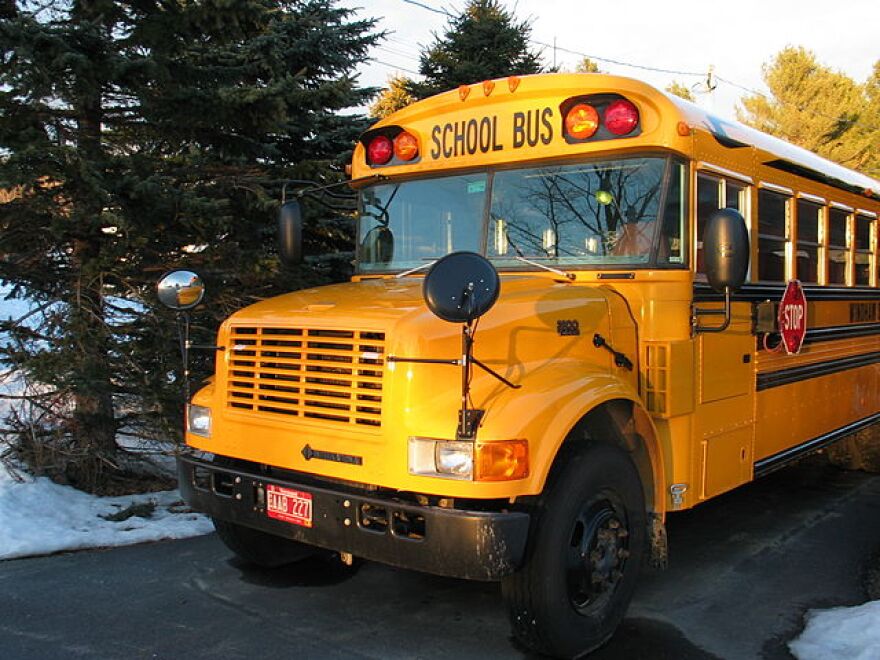As experts and researchers debate the possible benefits and drawbacks of consolidation, the Vermont House has moved an education spending and governance bill that encourages school district mergers to the Senate.
House Bill 361 amends Vermont’s education funding, spending and governance law. It includes school consolidation, determining that districts should have a minimum of 1,100 students from preschool through grade 12.
The legislature's Joint Fiscal Office reported that efficiencies gained by consolidating districts could save between $32 million and $54 million a year.
Vermont Principals Association Executive Director Ken Page says many characterize the proposal as a mandated consolidation bill. Instead, he feels it is mandating conversation that could result in larger school districts. “This is really a bill about opportunity. It isn’t necessarily a bill that says let’s just make larger districts and let’s make people’s lives harder. This really looks across the state and says what are the opportunities that our kids should have and what allows them to happen? Having been a principal in the Waterbury-Duxbury school district and having had a chance to combine two school districts, Waterbury and Duxbury, there was huge savings. There were better opportunities. I consider myself one of the few principals that’s had an opportunity to literally close a school, open up a new school, and realize the savings and the opportunities. So I think I’m probably uniquely poised in that I can say really what a consolidation does.”
The bill’s detractors, which include the National Education Association’s Vermont affiliate, say the legislation is unnecessary. “Already enshrined in law local communities can make those decisions anytime they want.”
NEA Vermont Spokesman Darren Allen says local communities have voted to keep their local schools despite action on this bill in Montpelier. “What this bill represents is a disconnect between Montpelier and the lives of real Vermonters who cherish their schools and recognize them to be the centers of the community that they’ve always been. It also shows that Vermonters when given the opportunity vote to keep their kids going to schools in their own communities.”
Allen believes H361 will be detrimental to schools. “It contains a spending cap determined in Montpelier. We have found every state where spending caps are imposed on any public services those services diminish. So we are quite certain that if this spending cap survives the Senate Vermont schools will start to see diminished resources for their students. The voluntary but not really voluntary consolidation scheme will inevitably lead to closed schools, firing of hundreds of educators, and it will mean that many Vermont children will no longer be able to go to school in their own communities.”
Backers say the bill addresses concerns about rising property taxes. But Ken Page isn’t certain how much it will impact those costs. “We’re at the sort-of breaking point in looking at providing property tax relief. Whether savings can be realized or not I don’t know. But the important part of this bill is not just about the saving of money but it’s setting up for educational policy goals. Number one on the educational policy goal is to promote equity in the quality and variety of educational opportunities available throughout the state. The offerings for kids out there are just not the same.”
The NEA’s Darren Allen is adamant that consolidation will do nothing to help the property tax burden. “This bill if it closes every small school in the state will potential slash $76 million from a $1.5 billion expenditure. You can do the math. That’s not going to result in a noticeable savings of any kind. What it will result in is a noticeable diminishment of the education that the kids in those towns without schools will have.”
The bill won final approval in the House on Thursday and now moves to the Senate.




